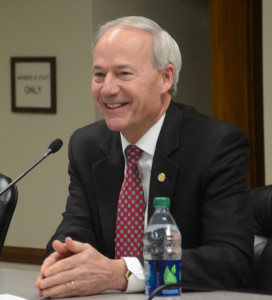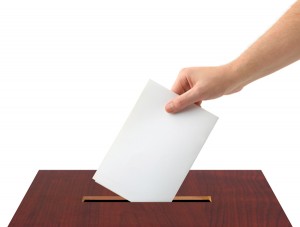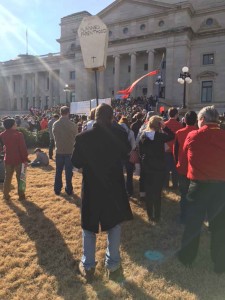
© 2016 by Steve Brawner Communications, Inc.
You know that old saying about the difference between ham and eggs? The chicken is involved but the pig is committed. Gov. Asa Hutchinson was both during this year’s primary elections.
With the presidential race, he was merely involved. He endorsed Sen. Marco Rubio for president eight days before the vote. He made a couple of appearances and a TV commercial. Donald Trump won Arkansas. Rubio was third, which he was going to be anyway.
Hutchinson, however, was committed in the state legislative races, where his political action committee, ASA PAC, donated money to eight Republican candidates who had Republican opponents.
This happened because the eight he supported also support, or at least would consider supporting, Hutchinson’s Arkansas Works. That’s the continuation of the private option, the state program that uses federal Medicaid dollars through Obamacare to purchase private insurance for adults with incomes up to 138 percent of the federal poverty level.
Created in 2013 by Republican legislators and Gov. Mike Beebe’s administration, it now covers 200,000 Arkansans. It brings a billion dollars in federal money to the state’s economy annually and has saved hospitals from providing millions of dollars in uncompensated care. But some Republicans are opposed because of its association with Obamacare, because it’s another government entitlement, and because they say neither the state nor the country can afford it.
Because it involves spending money, it requires a three-fourths vote for passage every year, which means nine senators can kill it. It barely reached three-fourths in 2013 and in 2014.
In 2015, Hutchinson persuaded legislators to accept a truce: Fund the private option through 2016, when it would end, and he and a task force would look into creating something else. That alternative is Arkansas Works, which is like the private option except that it requires a bit more personal responsibility on the part of beneficiaries. He says it’s a real change. Opponents say it’s cosmetic.
Hutchinson says Arkansas needs it. His budget depends on it. He doesn’t want to take insurance from 200,000 people. He needs $50 million in extra money for highways so the state will be eligible for $200 million in matching federal dollars. Take away the private option, or Arkansas Works, and that money’s hard to find without a tax increase, which isn’t happening.
On April 6, legislators will meet in special session to vote on Arkansas Works, or something. It can pass with a simple majority, which isn’t that high a bar. Then they’ll meet in the fiscal session, which occurs every even-numbered year, to vote on funding. And because a three-fourths majority will be needed, that session could be a doozy.
Arkansas Works was a central issue in those eight Republican primaries, which left Hutchinson a choice: Do nothing so as not to offend the potential winners; get involved like the chicken; or be committed like the pig. He was committed. He openly supported candidates. He held a press conference defending them. His political action committee gave each of them $5,400.
His job would have become much harder had those candidates lost. While the winning candidates would not take office before the special session, the current legislators would see Arkansas Works as a losing bet. Then Hutchinson next year would be dealing with as many as eight new legislators he’d worked to defeat.
Instead, six of the eight won, including all three in the Senate, where Hutchinson has no votes to spare. On the House side, three of his five candidates won, and one who lost was challenging an incumbent, Rep. Josh Miller, R-Heber Springs. Miller was already in the House, so Hutchinson’s situation didn’t change there.
The next day, Hutchinson addressed the Political Animals Club at the Governor’s Mansion. His mood was not quite jubilant, but it was definitely somewhat north of relieved.
“I think everybody in this room knows that if those three state senators had lost their race, it would not be a pleasant day for me in this room,” he said. “I would have to be explaining. It would have been considered a referendum on me and my leadership.”
Yes, it would have been, in a way that the presidential race was not. He was merely involved with Rubio for eight days, but he’s staking a big chunk of his first term as governor on Arkansas Works. That’s commitment.
Related: Coming health care debate a “cage fight,” says leading legislator.

